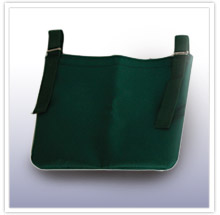|
|
|
|
|
|
|

|
Keeping Dignity at the Forefront of Care
As you go through your routine each day, are you mindful of resident dignity? Tag F241 reminds us that "The facility must promote care for residents in a manner and in an environment that maintains or enhances each resident's dignity and respect in full recognition of his or her individuality."1
Respecting residents' dignity can include actions as simple as helping them attend activities of their own choosing or making sure to label clothing on the inside rather than the outside.
|
|
|
|
Here are some other examples cited in F2411:
- Grooming residents according to their wishes (for example, clipping their nails, shaving or trimming their facial hair and shampooing and styling their hair)
- Encouraging residents to dress in their own clothes, appropriate to the time of day and according to their personal preferences (and assisting them as needed)
- Promoting independence and dignity in dining by doing the following:
- Limiting day-to-day use of plastic cutlery and paper or plastic dishes
- Using bibs (also known as clothing protectors) by resident request (otherwise, use napkins)
- Sitting with residents while helping them eat rather than standing over them
- Staff talking to residents, rather than each other, while helping residents eat
- Respecting residents' private space and property
- Speaking respectfully and addressing residents by the names of their choosing
- Refraining from posting signs in resident rooms that display confidential clinical or personal information (these signs may be posted in more private locations, such as inside a closet)
- Keeping residents sufficiently covered when they are taken to areas outside their rooms, such as the bathing area
- Refraining from potentially demeaning practices, such as keeping urinary catheter bags uncovered, refusing to help with toileting during meal times and restricting residents from using common areas open to the public (unless they are on isolation precautions or are restricted according to care planned needs)
When in doubt, simply ask yourself:
How would I want to be treated if I was the person receiving care?
Reference
1 Centers for Medicare & Medicaid Services. State Operations Manual: Appendix PP – Guidance to Surveyors for Long Term
Care Facilities (Rev. 70, 01-07-11). Available at: http://www.cms.gov/Regulations-and-Guidance/Guidance/Manuals/downloads/
som107ap_pp_guidelines_ltcf.pdf. Accessed June 5, 2012.
|
|
|
|
|
|


|
Take a Tour of the Perfect Survey
Have you joined us for an online tour of Compliance Solutions: For the Perfect Survey Every Day? If not, we hope you’ll sign up for our June 21 webinar to find out why you don't need a software program or consultant telling you what to do. You already know what your problems are – what you need are solutions.
During this complimentary webinar, our Vice President of Clinical and Regulatory Compliance, Pam West, will guide you through the contents of our exclusive online survey preparation tool, including:
- The actual forms that surveyors use
- Guidance broken down by F tag and care area
- Exclusive tips from industry veterans
- Case studies to address how you would handle specific challenges in your own facility
|
|
|
|
The webinar will be held from 11:30 a.m.-12:30 p.m. CST. To register, click on the link to the left.
|
|
|
|
|
|
 |
|
|


|
Drainage Bag Holder
Our Compliance® Solution Drainage Bag Holder discreetly hides urinary drainage bags from public view and maintains resident dignity.
Additional features:
- May hang from wheelchairs, geri-chairs and beds
- Made from durable canvas or vinyl
- Universally sized to hold all drainage bags
|
|
|
|
Product pricing is only visible to registered promedsupply.com customers. If you are not yet registered, give us a call at (800) 648-5190 and our Customer Care Professionals will be happy to get you set up.
|
|
|
|
|
|






